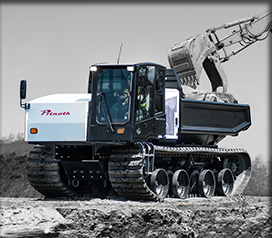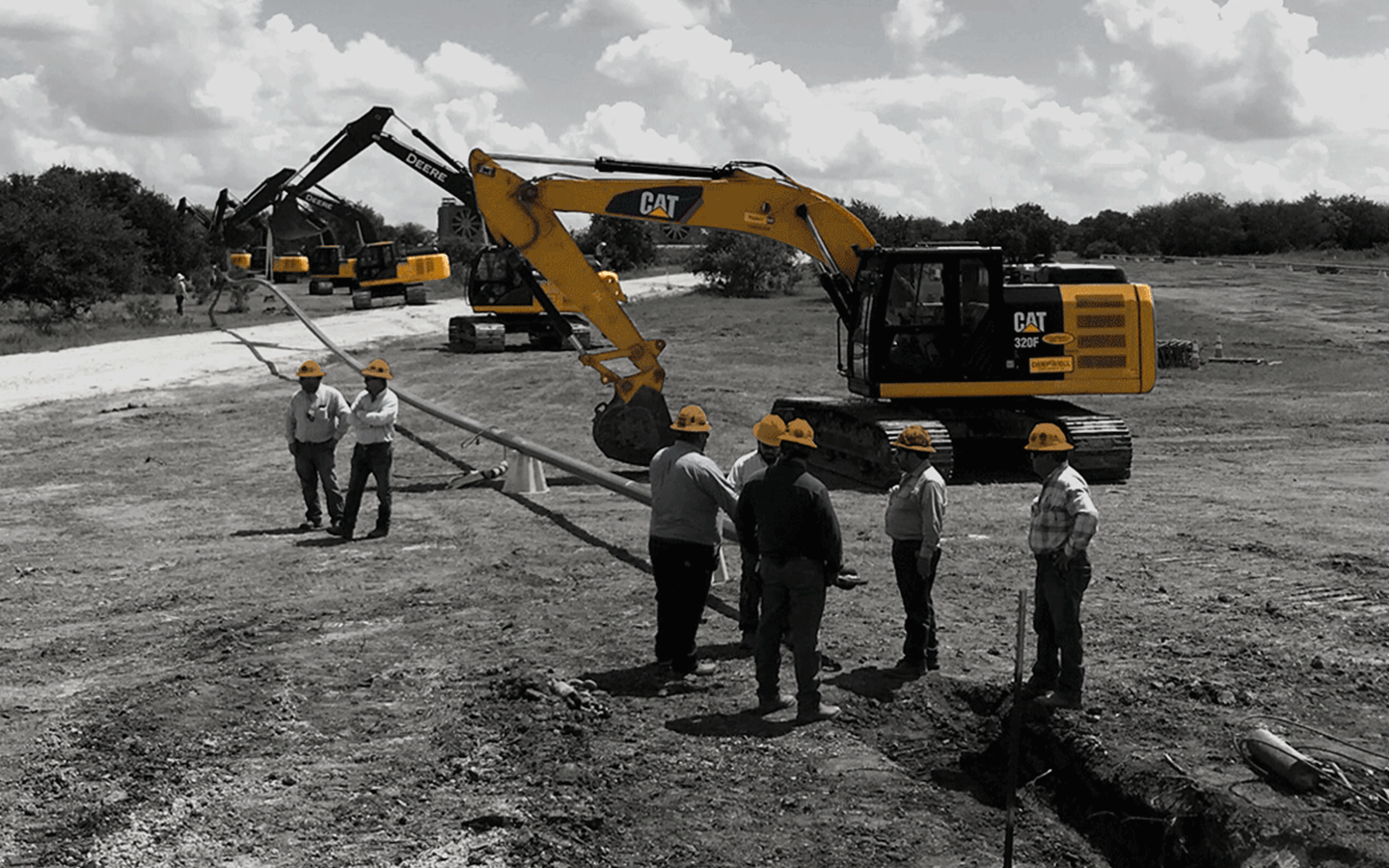A Comprehensive Overview to the Numerous Sorts Of Oil Field Equipment and Pipeline Equipment Available
The oil and gas market depends greatly on specialized tools for reliable removal and transportation. Various kinds of equipment, from drilling rigs to tank, play crucial functions in this complicated process. Each piece of tools serves distinctive features that add to total functional success. Recognizing these parts is necessary for anybody included in the industry. As the industry progresses, so too do the modern technologies that sustain it. What innovations are on the horizon?

Drilling Rigs: The Backbone of Oil Expedition
Drilling rigs act as the important equipment in the domain name of oil expedition, allowing business to gain access to hydrocarbon gets buried deep under the Planet's surface. These rigs are available in different types, including land rigs, offshore rigs, and mobile devices, each made to operate in particular settings. Equipped with innovative modern technology, piercing rigs can permeate geological developments with accuracy, making sure reliable resource extraction. The structural stability and operational capacities of these rigs are essential, as they need to endure extreme conditions and significant pressures. The selection of an exploration rig influences the general task cost and timeline, making it a vital consideration for oil firms seeking to optimize their exploration efforts and make best use of efficiency in their procedures.
Pumps: Essential for Liquid Activity
In the oil removal process, the duty of pumps is significant, facilitating the activity of fluids throughout numerous stages of manufacturing. Pumps are necessary for transporting petroleum, water, and various other liquids from below ground reservoirs to the surface and after that with pipelines to refineries. They come in different types, including centrifugal, favorable displacement, and submersible pumps, each serving particular objectives based upon the fluid features and functional requirements. Centrifugal pumps are typically made use of for their performance in high-flow applications, while favorable displacement pumps stand out in handling thick fluids. The option of pump effects general performance, operational safety and security, and upkeep expenses. Correct selection and upkeep of pumps are crucial for enhancing production and minimizing downtime in oil field procedures.
Shutoffs: Managing Flow and Pressure

Valves play a vital duty in managing the flow and pressure of liquids within oil fields and pipes. Different types of shutoffs serve distinct applications, each designed to accomplish certain features fundamental for efficient operation - Superior Oilfield Rentals oilfield. Understanding the characteristics and usages of these shutoffs is vital for enhancing system efficiency and safety
Kinds of Valves
Crucial components in oil field operations, shutoffs play a critical duty in controlling the flow and stress of fluids within pipelines and equipment. Different sorts of valves are utilized to meet the varied requirements of oil and gas production. Common kinds consist of gate valves, which supply a straight-line flow and very little pressure decline; globe shutoffs, understood for their throttling abilities; and ball shutoffs, acknowledged for their fast on/off control. In addition, check shutoffs avoid backflow, while butterfly valves use a lightweight option for managing circulation. Each shutoff type is made with specific products and setups to stand up to the rough conditions frequently found in oil areas, guaranteeing reliability and efficiency in operations. Understanding these kinds is crucial for effective system management.
Valve Applications and Functions
While different types of valves offer unique functions, their key applications focus on regulating circulation and stress within oil and gas systems. Shutoffs such as gate, globe, and ball shutoffs manage liquid activity, making sure peak performance and security. Gate valves are frequently used for on/off control, offering very little flow resistance. Globe shutoffs, on the other hand, deal precise circulation regulation, making them appropriate for strangling applications. Sphere shutoffs are favored for their quick procedure and limited securing capacities. In addition, stress alleviation shutoffs are important for avoiding system overpressure, safeguarding equipment stability. Generally, the ideal selection and application of valves enhance operational performance, ensuring the reputable transport of oil and gas through pipes and processing news facilities.
Compressors: Enhancing Gas Transport
Compressors play an essential function in the reliable transport of gas, making certain that it moves efficiently via pipes over cross countries. These tools increase the stress of natural gas, allowing it to conquer friction and elevation changes within the pipeline system. Additionally, compressors help with the harmonizing of supply and need, suiting changes in consumption and production rates. Various sorts of compressors are employed in the industry, including centrifugal, reciprocating, and rotating screw compressors, each offering distinct advantages based upon the functional demands. Routine upkeep of these compressors is necessary Resources to optimize effectiveness and minimize downtime, ultimately adding to a trusted gas transport network. Their critical function highlights the relevance of compressors in the overall oil and gas framework.
Storage Tanks: Safe and Effective Liquid Management
Efficient transport of gas counts on different supporting systems, among which is the proper management of storage space containers. These storage tanks play an important role in securely consisting of liquids, making certain that functional performance is maintained while decreasing environmental threats. Constructed from sturdy products, they are made to endure high pressures and destructive components. Properly sized and strategically located, tank promote the smooth circulation of natural gas and various other fluids, protecting against bottlenecks in supply chains. Routine maintenance and monitoring are essential to identify leakages or architectural concerns, promoting safety and security and conformity with regulatory requirements. Eventually, the reliable monitoring of storage containers is vital for the total honesty and reliability of the oil and gas industry's fluid handling systems.
Pipeline Equipments: Framework for Transportation
Pipeline systems act as the foundation of the oil and gas market, helping with the effective transport of hydrocarbons over vast ranges. These systems contain different elements, consisting of pipes, valves, pumps, and compressors, all carefully created to ensure smooth circulation. The products used in pipeline building, typically steel or high-density polyethylene, are picked for longevity and resistance to rust. Pipeline networks can extend across land and water, connecting manufacturing websites to refineries and distribution facilities. Additionally, advanced modern technology makes it possible for real-time tracking of flow rates and stress levels, boosting functional effectiveness. The critical placement of these pipelines minimizes ecological influence while taking full advantage of resource availability, thus playing a necessary duty in conference energy demands worldwide.
Safety And Security Equipment: Making Certain Worker and Environmental Defense
The procedure of pipeline systems, while essential for energy transportation, also offers considerable security view publisher site obstacles for employees and the environment. Safety equipment plays a substantial duty in alleviating these dangers. Personal protective equipment (PPE) such as headgears, handwear covers, and non-slip footwear safeguards workers from physical hazards. Furthermore, gas detection systems keep track of for leaks, ensuring that harmful substances do not pose a danger to personnel or the bordering ecological community. Emergency situation closure systems are necessary for swiftly stopping operations during a crisis, stopping prospective catastrophes. Spill containment products, consisting of absorbents and barriers, are essential for reducing ecological influence. In general, buying all-inclusive safety and security devices is crucial for maintaining functional stability and securing both employees and the atmosphere in the oil and gas sector.

Often Asked Questions
Just how Do I Choose the Right Oil Field Equipment for My Project?
Choosing the right oil area equipment involves evaluating task requirements, budget plan restraints, and functional requirements. Think about variables such as equipment reliability, compatibility with existing systems, and the provider's credibility to guarantee peak performance and safety and security.
What Are the Maintenance Demands for Oil Field Equipment?
Upkeep needs for oil field equipment consist of regular examinations, lubrication, and timely repairs. Operators needs to also stick to maker guidelines, monitor efficiency metrics, and assurance compliance with safety and security regulations to boost long life and efficiency.

How Can I Make Certain Conformity With Environmental Laws?
To guarantee conformity with ecological laws, companies have to conduct normal audits, apply best practices, purchase training, maintain correct paperwork, and stay updated on regulations (Superior Oilfield Rentals). Collaboration with environmental companies can also enhance adherence to laws
What Is the Ordinary Life Expectancy of Pipeline Equipment?
The ordinary lifespan of pipeline devices normally ranges from 20 to 50 years, depending upon variables such as material high quality, environmental conditions, and upkeep methods. Routine evaluations can significantly affect long life and functional efficiency.
Just how Do I Securely Transport Oil Field Equipment to Remote Locations?
Delivering oil field equipment to remote areas needs cautious preparation, consisting of course analysis, safeguarding permits, utilizing proper lorries, and ensuring security procedures are complied with. Appropriate training and interaction among crews are important for successful transport.